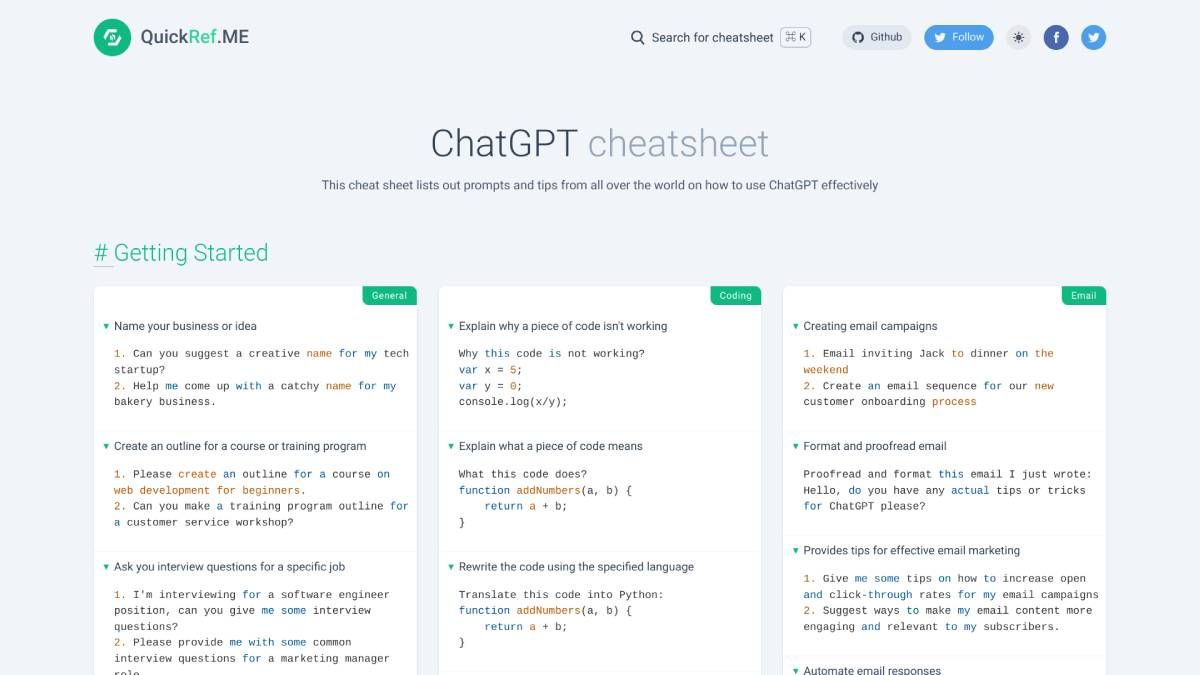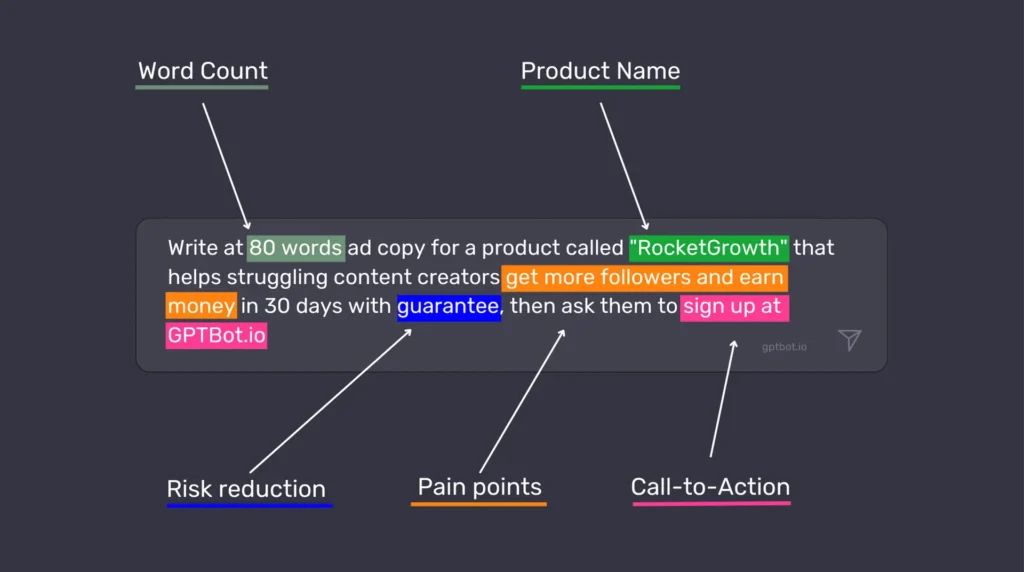“Unleash the Power of ChatGPT: Crafting Winning Proposals with AI
Artikel Terkait Unleash the Power of ChatGPT: Crafting Winning Proposals with AI
- The Rise Of The Machines In Customer Service: How ChatGPT Is Reshaping Customer Interactions
- Unleash Your Inner Content Superhero: A Freelancer’s Guide To Mastering ChatGPT
- Unleash Your Podcast Potential: How To Use ChatGPT For Killer Podcast Ideas
- Unleash The YouTube Thumbnail Powerhouse: ChatGPT For Click-Worthy Designs
- Unlocking Content Creation Superpowers: Mastering ChatGPT Prompts For Powerful Content Pillars
Table of Content
Video tentang Unleash the Power of ChatGPT: Crafting Winning Proposals with AI
Unleash the Power of ChatGPT: Crafting Winning Proposals with AI

In today’s competitive landscape, crafting a compelling proposal is crucial for securing funding, winning contracts, and driving success. A well-structured, persuasive proposal can be the difference between landing your dream project and being overlooked. However, the process of writing a proposal can be time-consuming, demanding, and often overwhelming. This is where ChatGPT, a powerful AI language model, can be a game-changer.
This article explores how you can leverage ChatGPT to streamline the proposal writing process, enhance the quality of your content, and ultimately increase your chances of success. We will delve into specific use cases, best practices, and potential limitations, providing you with a comprehensive understanding of how to effectively integrate ChatGPT into your proposal writing workflow.
Understanding ChatGPT: A Brief Overview
ChatGPT is a large language model developed by OpenAI. It is trained on a massive dataset of text and code, enabling it to generate human-like text, translate languages, summarize text, answer questions, and much more. Its ability to understand context, generate creative content, and adapt to different writing styles makes it a valuable tool for various writing tasks, including proposal writing.
How ChatGPT Can Revolutionize Your Proposal Writing Process
ChatGPT can assist with various stages of the proposal writing process, from brainstorming initial ideas to polishing the final document. Here’s a breakdown of its key applications:
-
Brainstorming and Idea Generation: Stuck on where to start? ChatGPT can help you brainstorm potential solutions, identify relevant keywords, and explore different angles for your proposal. Simply input a brief description of your project or problem, and ask ChatGPT to generate a list of potential solutions, innovative approaches, or relevant research areas. For example, you could input: "Generate ideas for a proposal on improving energy efficiency in small businesses."
-
Market Research and Competitive Analysis: Gathering comprehensive market data and analyzing the competitive landscape is crucial for demonstrating the value and uniqueness of your proposal. ChatGPT can assist in researching industry trends, identifying key competitors, and analyzing their strengths and weaknesses. You can prompt it with questions like: "What are the current trends in renewable energy technology?" or "Analyze the competitive landscape for software solutions in the healthcare industry."
-
Structuring Your Proposal: A well-structured proposal is essential for clarity and readability. ChatGPT can help you create a logical outline and organize your content effectively. You can ask it to generate a standard proposal template based on your industry or specific requirements. For example, you could input: "Create a proposal outline for a grant application to fund research on climate change adaptation strategies."

-
Content Generation and Drafting: This is where ChatGPT truly shines. It can generate high-quality, original content for various sections of your proposal, including:
- Executive Summary: A concise and compelling overview of your proposal. ChatGPT can help you summarize the key points and highlight the benefits of your proposed solution.
- Problem Statement: Clearly defining the problem you aim to address. ChatGPT can help you articulate the problem, its impact, and the urgency for a solution.
- Proposed Solution: Describing your approach and methodology. ChatGPT can assist in elaborating on your proposed solution, outlining the steps involved, and explaining its effectiveness.
- Project Timeline and Milestones: Creating a realistic timeline and defining key milestones. ChatGPT can help you estimate the duration of each task and create a visual representation of the project schedule.
- Budget and Resource Allocation: Justifying your budget and outlining how resources will be allocated. ChatGPT can assist in creating a detailed budget breakdown and explaining the rationale behind each expense.
- Evaluation Plan: Describing how you will measure the success of your project. ChatGPT can help you define key performance indicators (KPIs) and outline the methods for evaluating the impact of your proposed solution.

-
Refining and Polishing Your Writing: ChatGPT can help you improve the clarity, grammar, and style of your proposal. You can ask it to rewrite sentences, identify grammatical errors, and suggest improvements to your writing. For example, you can input a paragraph and ask ChatGPT to: "Rewrite this paragraph to be more concise and impactful."
-
Tailoring Your Proposal to Specific Requirements: Many funding agencies and clients have specific formatting guidelines and requirements. ChatGPT can help you adapt your proposal to meet these requirements. You can provide it with the specific guidelines and ask it to format your content accordingly.

Best Practices for Using ChatGPT in Proposal Writing
While ChatGPT is a powerful tool, it’s important to use it strategically and ethically. Here are some best practices to keep in mind:
-
Provide Clear and Specific Prompts: The more specific your prompts, the better the results you’ll get. Instead of asking "Write a proposal about renewable energy," try "Write a proposal for a grant application to fund research on solar panel efficiency improvements for residential buildings, targeting the Department of Energy’s Solar Energy Technologies Office."
-
Review and Edit Carefully: ChatGPT generates text based on patterns it has learned from its training data. It’s crucial to carefully review and edit the generated content to ensure accuracy, clarity, and relevance. Don’t blindly accept everything ChatGPT produces.
-
Maintain Originality and Avoid Plagiarism: ChatGPT can generate original content, but it’s essential to ensure that your proposal is unique and avoids plagiarism. Always cite your sources properly and use plagiarism detection software to verify the originality of your work.
-
Use ChatGPT as a Tool, Not a Replacement: ChatGPT is a valuable tool for assisting with the proposal writing process, but it shouldn’t replace your own expertise and critical thinking. Use it to generate ideas, draft content, and refine your writing, but always ensure that your proposal reflects your understanding of the subject matter and your unique perspective.
-
Experiment with Different Prompts and Approaches: Don’t be afraid to experiment with different prompts and approaches to see what works best for you. Try rephrasing your prompts, providing more context, or asking ChatGPT to generate multiple versions of the same content.
-
Be Mindful of Data Privacy and Security: When using ChatGPT, be mindful of data privacy and security. Avoid sharing sensitive information or confidential data in your prompts. Review the terms of service and privacy policy of the ChatGPT platform to understand how your data is being used.
Potential Limitations of ChatGPT
While ChatGPT offers significant benefits, it’s important to be aware of its limitations:
-
Accuracy and Reliability: ChatGPT is not always accurate and can sometimes generate incorrect or misleading information. It’s crucial to verify the information it provides and to rely on your own expertise and research.
-
Bias and Fairness: ChatGPT is trained on a massive dataset of text and code, which may contain biases. This can lead to ChatGPT generating content that is biased or unfair. Be aware of this potential limitation and strive to ensure that your proposal is objective and unbiased.
-
Lack of Creativity and Originality: While ChatGPT can generate creative content, it may lack the originality and nuance of human writing. It’s important to infuse your own personality and insights into your proposal to make it stand out.
-
Dependence on Input Data: The quality of ChatGPT’s output depends heavily on the quality of the input data. If you provide vague or incomplete prompts, you’ll likely get poor results.
FAQ: Using ChatGPT for Proposal Writing
Q: Can ChatGPT write an entire proposal for me?
A: While ChatGPT can generate a significant portion of your proposal content, it’s not recommended to rely on it to write the entire document. You need to review, edit, and personalize the content to ensure accuracy, relevance, and originality.
Q: Is it ethical to use ChatGPT for proposal writing?
A: Yes, it is ethical to use ChatGPT for proposal writing as long as you are transparent about its use and avoid plagiarism. Acknowledge the use of AI tools in your proposal if required by the funding agency or client.
Q: How much does ChatGPT cost?
A: OpenAI offers both free and paid versions of ChatGPT. The free version has limitations on usage and features, while the paid version (ChatGPT Plus) offers faster response times, priority access to new features, and increased usage limits.
Q: What are some alternatives to ChatGPT for proposal writing?
A: Other AI-powered writing tools that can assist with proposal writing include Jasper, Copy.ai, and Rytr. However, ChatGPT is generally considered to be one of the most powerful and versatile options.
Q: How can I learn more about using ChatGPT effectively?
A: OpenAI provides extensive documentation and tutorials on its website. You can also find numerous online resources, including blog posts, articles, and videos, that offer tips and best practices for using ChatGPT.
Conclusion: Embracing AI to Enhance Your Proposal Writing
ChatGPT is a powerful tool that can significantly enhance your proposal writing process. By leveraging its capabilities for brainstorming, research, content generation, and refinement, you can save time, improve the quality of your proposals, and increase your chances of success. However, it’s crucial to use ChatGPT strategically and ethically, recognizing its limitations and maintaining your own expertise and critical thinking. By embracing AI as a valuable assistant, you can unlock new levels of efficiency and effectiveness in your proposal writing efforts, ultimately leading to greater success in securing funding, winning contracts, and achieving your goals. As AI continues to evolve, integrating it into your workflow will become increasingly essential for staying competitive in today’s dynamic environment. So, explore the potential of ChatGPT, adapt it to your specific needs, and unlock the power of AI to craft winning proposals that stand out from the crowd.
